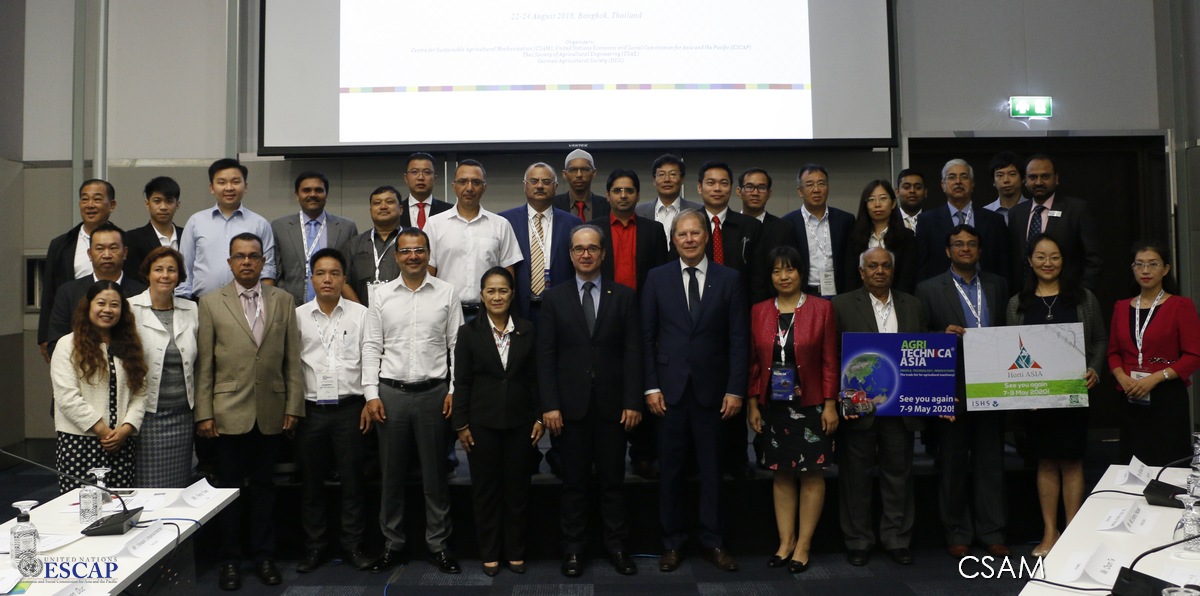Leading agricultural associations call for private sector support in scaling up sustainable mechanization technologies

Bangkok, Thailand (ESCAP news) – Scaling-up sustainable mechanization technologies in Asia and the Pacific requires active participation from the private sector as well as cooperatives, according to regional and international agricultural experts at the 4th Member Meeting of the Regional Council of Agricultural Machinery Associations in Asia and the Pacific (ReCAMA) today.
Organized by the Centre for Sustainable Agricultural Mechanization (CSAM) of the United Nations Economic and Social Commission for Asia and the Pacific (ESCAP), in collaboration with the Thai Society of Agricultural Engineering and the German Agricultural Society, the meeting brought together policymakers, academics and researchers, private sector and industry association representatives to discuss scaling-up the availability, adoption and sustainable use of agricultural machinery at the regional level through a demand-driven model closely involving the private sector.
“An empowered, profitable, responsible and appropriately regulated private sector is critical for promoting agricultural employment, poverty alleviation and livelihood improvement for the rural population in Asia and the Pacific,” said Head of CSAM, Dr. Yutong Li.
She added, “At the same time, the private sector is the key machinery and service provider for farmers. Critical to this role is the ability of the private sector to have an in-depth understanding of the genuine requirements of farmers, while also being able to quickly respond to changing conditions via scaling-up relevant technologies and recognizing upcoming trends.”
The meeting, held on the side-lines of the Agritechnica Asia 2018 exhibition, further highlighted the significant role of agricultural machinery associations and cooperatives as intermediates and facilitators of business-government relations, emphasizing that supporting and strengthening agricultural machinery association is important for paving the way towards sustainable agricultural mechanization in the region.
Member associations at the meeting also endorsed the work report of ReCAMA in 2018 and proposed work plan for 2019, and approved the participation of the Association of Indonesian Agriculture Machinery (ALSINTANI) as new member.
The Regional Council of Agricultural Machinery Associations (ReCAMA) was established by CSAM in 2014. ReCAMA works to promote sustainable agricultural mechanization in the region through strengthening the capacity of national agricultural machinery associations, facilitating knowledge exchange, and enhancing collaboration and closer business connections among national associations and their members. To date, ReCAMA has 19 member associations from 14 countries.
For more information visit: http://www.un-csam.org/
For any media inquiries, please contact:
Ms. Feng Yuee, CSAM, T:(+86) 10 82253581 / E: fengyuee@un-csam.org
